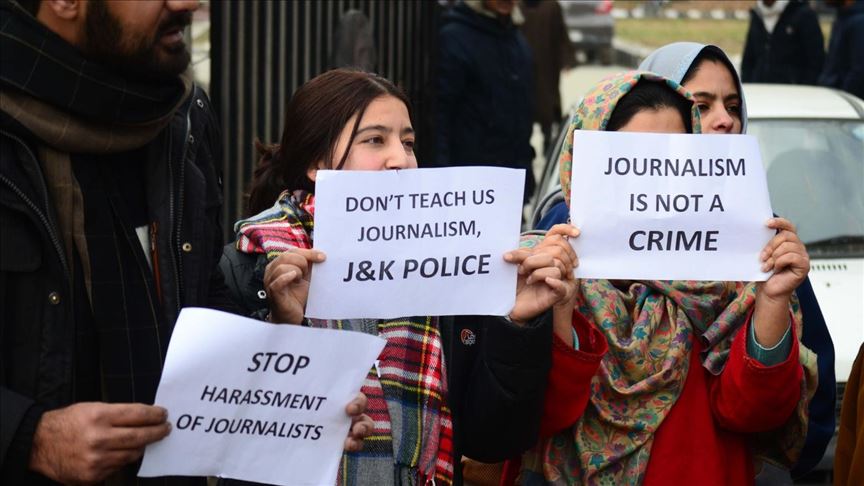UN Special Rapporteurs concerned with criminal proceedings against 4 Kashmiri journalists

TCN News
The office of the United Nations High Commissioner (OHCHR) has expressed strong concern at the criminal proceedings and investigations initiated” against the four well-known Kashmiri journalists. This was revealed through the letter directed to the Government of India, which was made public by OHCHR recently.
David Kaye, the UN’s Special Rapporteur on the promotion and protection of the right to freedom of opinion, in a detailed letter has expressed concern over the police action against four Kashmiri journalists Naseer Ganai, Gowhar Geelani, Peerzada Ashiq and Masrat Zehra. The letter condemns the alleged harassment meted out to these journalists.
The other UN Special Rapporteur's Leigh Toomey and Mary Lawlor from the ‘Working Group on Arbitrary Detention’ of the UN have written to the Human Rights Council President drawing attention to criminalization of four Kashmiri journalists covering Jammu & Kashmir by Indian authorities.
The letter has reported the present legal standings of journalists Naseer Ganai, Masrat Zahra, Peerzada Ashiq and Gowher Geelani, all of whom have extensively covered the atrocities and dense militarization of Kashmir by the Indian forces. Owing to the criminal procedures and legal proceedings against these journalists who were harassed while on-field duties, the Rapporteurs have highlighted that “journalism is a necessary service to any society” and “a free, uncensored and unhindered press constitutes the cornerstones of a democracy.”
The letter has detailed legal actions initiated by Indian authorities against the four Kashmiri journalists, stating that such allegations and harassment of reporters reveal “a pattern of silencing independent reporting on the situation in Jammu and Kashmir through the threat of criminal sanction.” Further, slapping UAPA on the journalists makes up for a “broad scope making them easily amenable to abuse,” as in these cases.
The Working Group has also attached relevant instruments and laws of international human rights that apply to these four cases, resonating that the Council provide information on the compatibility of the criminal charges against the individuals. It has also demanded that India follow “obligations to respect and ensure the freedom from arbitrary arrest or detention” of these journalists. The Committee has mandated that the Council provide necessary directions and effective remedies within 60 days so that the investigation of the alleged violations to rights of these journalists can be conducted.
Additionally, the Special Rapporteurs informed that a copy of this allegation letter has been transferred to the Indian Government and once the letter receives recommendations from the President, it could be transmitted through the regular procedure to inquire whether the deprivation of the journalists’ liberty was arbitrary or not. The Working Group wrote that it has also asked for a separate reply of the Government to this allegation letter as constituted in the regular procedure.
